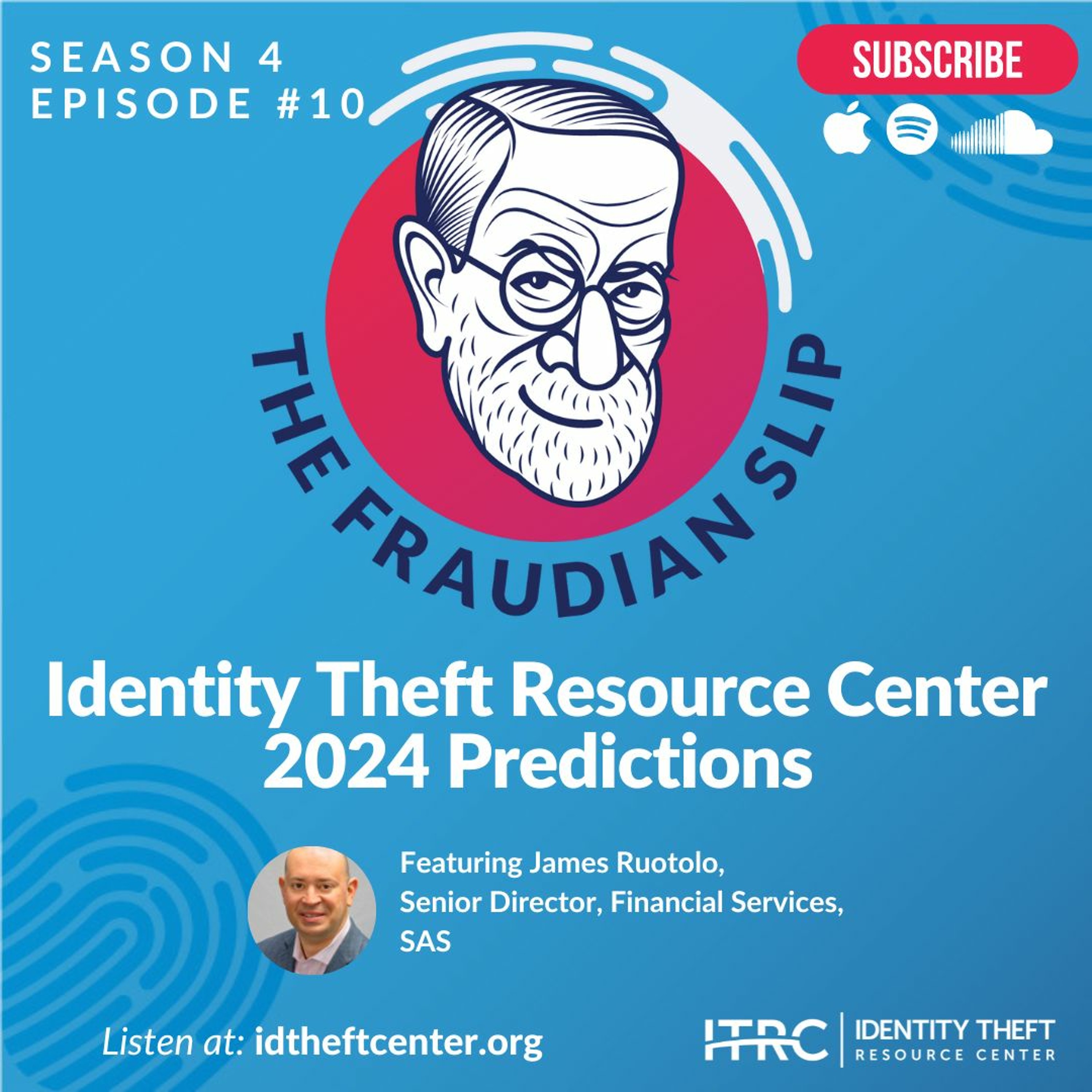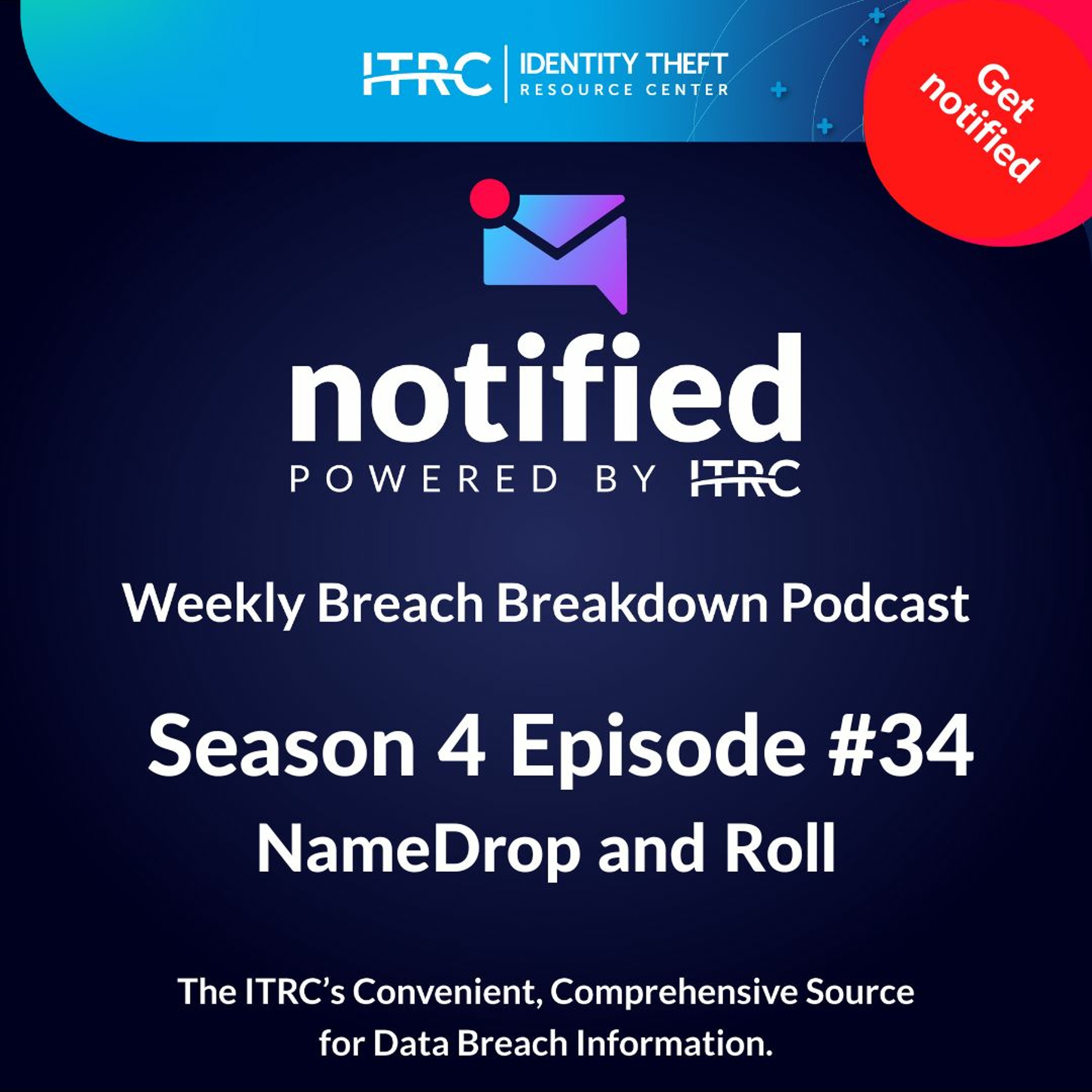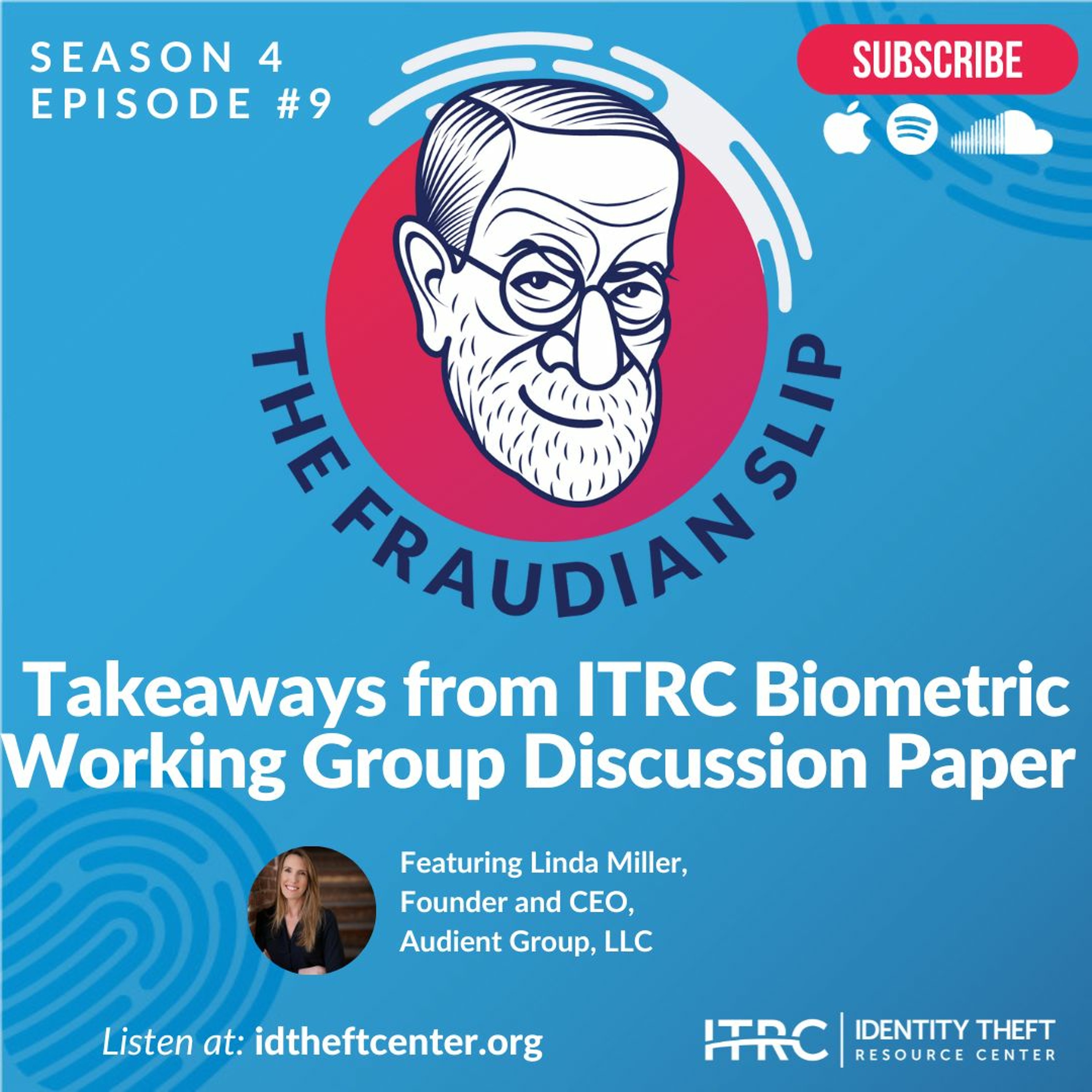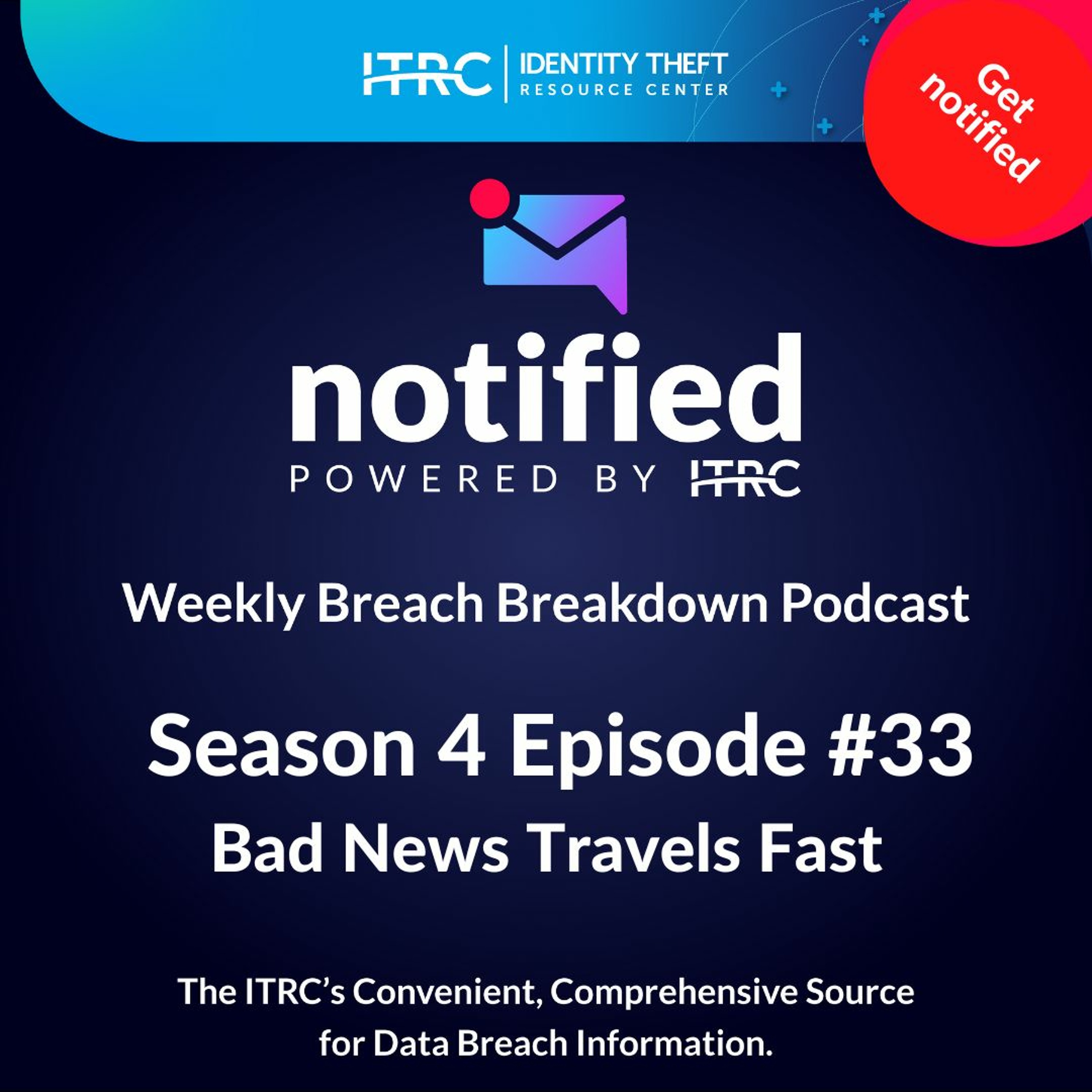In this podcast, we'll discuss the privacy implications of AI, and highlight the potential dangers of using AI without proper security measures in place.
Show Notes
Follow on LinkedIn: www.linkedin.com/company/idtheftcenter/
Follow on Twitter: twitter.com/IDTheftCenter
Show Transcript
Welcome to the Identity Theft Resource Center’s (ITRC) Weekly Breach Breakdown for February 10, 2023. Each week, we look at the most recent events and trends related to data security and privacy. This week, we discuss artificial intelligence privacy concerns. AI has been a hot topic in the news lately. While it offers amazing potential, it also carries some serious implications for our privacy. In this podcast, we’ll discuss the privacy implications of AI and highlight the potential dangers of using AI without proper security measures in place.
What Are the Risks to Privacy from AI Tools Like ChatGPT?
The AI privacy concerns around tools like ChatGPT include the potential for data breaches or misuse of collected data, the possibility of AI-generated fake content and the potential for AI-based surveillance technologies to be used for nefarious purposes. Additionally, AI-based tools may be used to profile and target individuals with personalized services or products without their consent. Finally, AI tools may be used to manipulate and influence public opinion, which can lead to a loss of autonomy and control over personal information.
How Do We Ensure AI Tools Like ChatGPT Are Not Misused in Ways That Violate Privacy or Manipulate Information?
To ensure AI tools like ChatGPT are not misused in ways that violate privacy or manipulate information, organizations should put in place privacy policies that regulate the collection, use and disclosure of data, and ensure the security of the data. Organizations should also ensure that AI-based tools are transparent and explainable and are not used to generate fake content or deceive users. Additionally, organizations should allow users to opt-out of data collection and limit the use of the data to the intended purpose. Finally, organizations should be held accountable for any misuse of AI-based tools and be subject to penalties or sanctions if they violate privacy or data protection laws or regulations.
Is There a Way to Prevent AI Tools Like ChatGPT From Being Misused by Malicious Individuals and Criminals?
Yes, there are ways to prevent AI tools like ChatGPT from being misused by malicious individuals and criminals. Organizations should implement a robust security system to protect data from unauthorized access, use and disclosure. Additionally, organizations should ensure that AI-based tools are transparent and explainable and not used to generate fake content or deceive users. Additionally, organizations should allow users to opt-out of data collection and limit the use of the data to the intended purpose. Finally, organizations should be held accountable for any misuse of AI-based tools and be subject to penalties or sanctions if they violate privacy or data protection laws or regulations.
What Should a Person Do if They Are a Victim of Identity Theft Caused by an AI Tool Like ChatGPT?
If a person is a victim of identity theft caused by an AI tool like ChatGPT, they should contact the relevant authorities to report the incident and seek help. Additionally, they should contact their bank or credit card provider to cancel any cards or accounts affected by the theft and to report the incident. They should also contact the relevant data protection authorities to notify them of the breach and to seek further assistance. Finally, they should take steps to protect their identity, such as changing passwords, setting up two-factor authentication and monitoring their credit report.
By the way, this podcast was written by Open AI’s GPT3 AI engine and voiced by a real, live human being.
Contact the ITRC
If you want to know more about how to protect your personal information from misuse by humans or machines, have questions about AI privacy concerns, or if you think you have been the victim of an identity crime, you can speak with an expert ITRC advisor on the phone, chat live on the web, or exchange emails during our normal business hours (Monday-Friday, 6 a.m.-5 p.m. PST). Just visit www.idtheftcenter.org to get started.
We’ve posted a lot of great podcast content in the past two weeks, from our 2022 Annual Data Breach Report to five podcasts and a webinar produced in cooperation with the Federal Trade Commission for Identity Theft Awareness Week. Give them a listen. We will be back next week with another episode of the Weekly Breach Breakdown.
Listen On
Also In Season 4
-

The Fraudian Slip Podcast ITRC - 2024 Predictions
Welcome to the Fraudian Slip…the Identity Theft Resource Center’s podcast where -

The Weekly Breach Breakdown Podcast by ITRC - NameDrop and Roll - S4E34
Welcome to the Identity Theft Resource Center’s Weekly Breach Breakdown for Dece -

The Fraudian Slip Podcast ITRC - Takeaways from the ITRC Biometric Working Group Discussion Paper
Welcome to the Fraudian Slip…the Identity Theft Resource Center’s podcast, where -

The Weekly Breach Breakdown Podcast by ITRC - Bad News travels Fast - S4E33
Welcome to the Identity Theft Resource Center's Weekly Breach Breakdown for Nove
